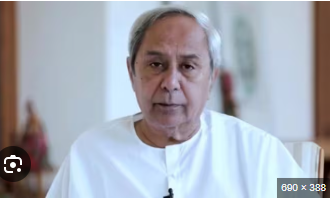NEW DELHI, Dec 23: After various members of the opposition INDIA bloc, the Biju Janata Dal (BJD), the erstwhile ruling party of Odisha, which had remained unattached to either the opposition or the ruling NDA alliance, during the last general elections, has also expressed doubts over the fairness of the election process conducted by the Election Commission of India (ECI).
The BJD, which faced its first electoral defeat since inception in the state Assembly elections held simultaneously with the Lok Sabha polling in April, this year, on Monday raised serious concern over alleged discrepancies in the voting patterns observed in the 2024 elections. The BJD was an alliance partner of the ruling BJP till the 2024 elections.
The party’s claims came after an analysis of the voting data of the Election Commission of India (ECI). “The ECI’s conduct of election is always expected to be fair and transparent. However, BJD has identified some serious discrepancies in the data provided by the various returning officers, vis-a-vis the data provided by the ECI,” the regional party said in a letter petition submitted to ECI on Monday.
The party said there were massive differences in votes polled in a booth and the total votes counted from the same electronic voting machine (EVM). “How is this possible? This should not be the case as the total number of votes counted by the returning officer cannot vary from the report of votes polled by the presiding officer especially when EVMs are used,” the party said.
“The variance in these cases at single booth level is high enough to possibly impact the final outcome of the election in that assembly and parliament constituency, when collated across all booths. These variations also raises question about the integrity of the whole process,” it said.
“In this, we would also like to add that under provisions of RTI [Right to Information] and Representation of People’s Act, we had asked all districts to supply the copies of Form 17-C, but despite repeated requests, even after the statutory period for retention of documents was long over, we have still not received it,” BJD Rajya Sabha members and other party leaders said in the petition.
“In Odisha simultaneous elections happened for Assembly and Parliament. When simultaneous elections happen, it is expected that the number of votes polled for Assembly constituencies and the corresponding Parliament constituency will be the same. It is highly improbable that a voter will enter a booth and vote only for the Parliament candidate and not for the Assembly candidate or vice versa. In the rarest of rare cases if that happens, it is recorded in Form 17-C by the presiding officer,” the MPs pointed out in the petition.
“In 2024 election, across all 21 Parliamentary constituencies, there is a huge discrepancy seen between votes counted in a PC [parliamentary constituencies] and its constituent ACs [Assembly constituencies],” the party said.
“In fact, the most shocking discrepancies are when there is huge increase in voting percentage between the data published at 11.45 PM (night) on polling day and the final data published by ECI after 2 days. Is it possible that voting at this scale happens after 11.45 PM of the polling day?” the party said.
“In Keonjhar assembly constituency from where the present Chief Minister Mohan Charan Majhi was contesting, the difference between the voting percentage at close of poll and end of poll is 30.64% and the difference between the voting percentage at 11.45 PM (night) of the poll day and the final percentage published by ECI after two days is 10%,” the BJD said.
“This difference is the highest in the country, perhaps the highest ever in the country’s electoral history. This needs a serious analysis or enquiry as to how this much discrepancy has happened. We now have EVMs and fool-proof telecom networks much better than what existed during the 2004 elections, which was two decades ago. At that time, the discrepancy was less than 2%. How can there be a discrepancy of more than 30% now? Without casting any aspersions we would like to say these discrepancies are serious in nature to undermine the conduct of free and fair election,” BJD Rajya Sabha MPs said.
“This issue is not about victory or defeat only, this is also not about BJP and BJD. This is about strengthening integrity and transparency of electoral process in the country. We don’t have all booth level data with us. We have asked data of all booths. The Chief Election Commissioner (CEC) has assured that he would look into the matter,” BJD MP Sasmit Patra said.
“The objective of our former CM Naveen Patnaik was not aimed at indulging in mudslinging. We are always asked if you are on side of ruling [alliance] or Opposition. But I want to make it clear that Naveen-babu is above the party politics and basic tenet of Opposition versus ruling [alliance]. Question arises here — if there is mistake, where is it? CEC must clarify this in a transparent manner,” Mr Patra said.
Former BJD MP Amar Patnaik said there were some unexplainable and unusual variances between votes polled and the voting pattern in the 2024 Parliament election and Odisha Assembly election.
When asked if the party was in favour of returning to the old ballot system of voting, Mr Patnaik said the party had not taken a view on it. “We will wait for a reply to our petition on the matter from ECI. If we get more data, as we have pleaded before them, for different booths, then we will be very reasonable to know as to what is the margin or extent of discrepancy across booths. Then the party would be in a position to take a view,” he said.
(Manas Dasgupta)

